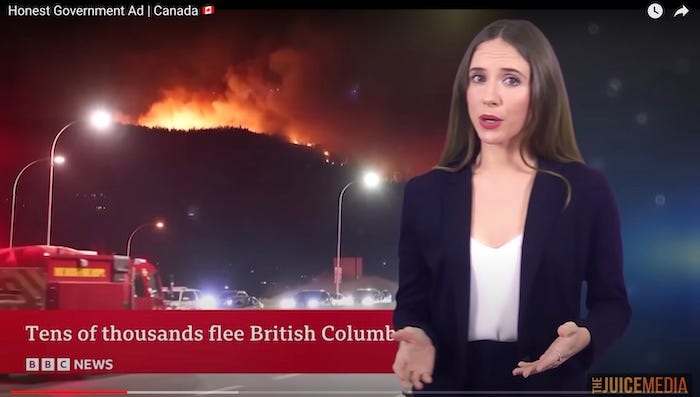Everyone, Everywhere, All At Once
It isn’t too late to solve climate change. But the first-ever Global Stocktake under the Paris climate agreement shows that we need to pick up the pace. And everyone has to do their part.
Trust the United Nations to come up with a name like the Global Stocktake for an essential, high-stakes exercise to hold countries accountable for reducing their climate pollution under the 2015 Paris climate agreement.
The formal title makes it sounds like a world-wide network of storekeepers, all closing up shop simultaneously to take inventory. But the Global Stocktake is pretty much infinitely more important than that. The report issued September 8, described by the New York Times as a “first official report card” on the Paris deal, looks at how well countries have kept their promises to address the impacts of climate change and drive down the greenhouse gas pollution that causes it.
The unsurprising answer: Eight years and countless climate disasters since the Paris agreement was finalized, there’s been some halting progress, but not nearly enough.
“While action is proceeding, much more is needed now on all fronts,” the Global Stocktake’s two co-facilitators write, after a two-year slog that had them hosting 252 hours of dialogue and synthesizing more than 170,000 pages of technical input. “Against forecasts made prior to its adoption, the Paris Agreement has led to contributions that significantly reduce forecasts of future warming, yet the world is not on track to meet the long-term goals of the Paris Agreement.”
In a year of record heat, epic wildfires, and killer floods, you would be right to conclude that the UN is saying what we already know, what too many of us have been tasting in the back of our throats. But in the plodding, process-heavy world of international diplomacy, there’s still some value in an exercise meant to inform negotiations at this year’s UN climate conference and set the stage for countries to update and strengthen their Paris commitments, or Nationally Determined Contributions, in 2025.
If only because, for better and for worse, this is still the best process we have for getting 195 countries pointed in the same direction on a global emergency that affects them all—but where that urgency is expressed in square brackets and “smiley faces” that shape what everyone can actually agree on.
Programming note: You’ve probably been reading that tech giants Google and Facebook/Meta are blocking Canadian media from their news platforms. That makes email subscriptions to The Energy Mix and the Energy Mix Weekender your best antidote to make sure you always get the climate news you need. Subscribe today and never miss another edition!
A ‘Narrowing Window’
The 46-page synthesis report is the latest in a string of dire warnings that global greenhouse gas emissions are out of sync with the temperature goals in the Paris agreement. It points to a “rapidly narrowing window to raise ambition and implement existing commitments in order to limit warming to 1.5 °C above pre-industrial levels.”
It calls for a “radical decarbonization of all sectors of the economy” that includes “scaling up renewable energy while phasing out all unabated fossil fuels, ending deforestation, reducing non-CO2 emissions, and implementing both supply- and demand-side measures.” In plainer language, that means “cutting with both arms of the scissors” and working to phase down fossil fuel extraction, at the same time that we reduce demand by increasing massively energy efficiency and deploying renewable energy and storage.
Last month, a briefing by Oil Change International concluded that 20% of existing oil and gas extraction will have to shut down to keep a 1.5°C climate stabilization target within reach.
To get on track with the Paris commitments, the Global Stocktake report says countries need “much more ambition in action and support” to hit emission reduction targets of 43% by 2030 and 60% by 2035. “There are now sufficient cost-effective opportunities to address the 2030 emissions gap,” the report says. But “significant challenges, including access to and availability of support, remain in harnessing these opportunities at the required pace and scale.”
The synthesis stresses that whole societies, not just national governments, have to be a part of the solution.
It calls for deep, rapid shifts in industry, transport, buildings, and other sectors to “rapidly reduce process and energy emissions.”
And it acknowledges that “rapid change can be disruptive”, reiterating past calls for “inclusion and equity” to prevent fossil-dependent communities from being left behind.
Bringing the Targets Home
Even if there’s very little new in the Global Stocktake report, it will be an important marker when countries gather in the United Arab Emirates (UAE) later this year for the COP 28 climate summit.
For the rest of us, there’s a different takeaway. The more the focus shifts from the “what” to the “how”—from setting the targets and issuing the declarations to actually delivering on countries’ climate promises—the more the work across whole societies takes centre stage.
The Global Stocktake is about targets adopted by national governments. But targets only matter if they’re met. And countries’ ability make good on their pledges depends on countless decisions by businesses, institutions, cities and provinces, and individuals that are in a position to either drive down emissions and boost local resilience to climate impacts, or obstruct those goals at every turn.
The action we need will happen a lot sooner, and a lot more easily, when those influencers can see themselves in a picture of climate solutions.
When they conclude that action on climate change is about opportunity and gain, not loss and pain.
When they recognize that, even when there are trade-offs and tough choices, taking fast, effective action on global heating is vastly less painful than the unimaginable loss and suffering already crushing neighbourhoods, regions, countries, and continents, and coming soon to their own communities, businesses, or supply chains.
Influencers at Every Level
The Global Stocktake took place in the rarified air of the UN negotiating process. But it was the latest answer to the most commonly-asked questions we hear on the climate beat:
Is it already too late?
And
Is there anything we can still do to get climate change under control?
The answers to those questions are no, and hell, yes.
But only if everyone, everywhere embraces this challenge all at once. Particularly the influencers at every level of society, from neighbourhood associations to participants in UN negotiating sessions, who can have a disproportionate impact in driving faster, deeper emission cuts and an all-in response to climate impacts.
That would mean the rich countries of the G20 moving forcefully, not haltingly, to speed up the energy transition, rather than wrapping up their latest summit in New Delhi September 9 “with no ambitious calls to phase out fossil fuels equitably,” according to the Fossil Fuel Non-Proliferation Treaty secretariat.
It would require the UAE to rethink its massive expansion plans for the Abu Dhabi National Oil Company (ADNOC)—or if it can’t or won’t, stop pretending that company CEO Sultan al Jaber can dodge what may be the world’s most flagrant, consequential conflict of interest by presiding over COP 28 negotiations.
It means calling out and appealing to regulators against the continuing, ludicrous claim that the gas industry can be a bridge to a net-zero energy future when the main component of its product, methane, packs 84 times more global warming punch than carbon dioxide over a 20-year span.
It should mean shunning and pulling investment dollars out of fossil companies like Suncor, Shell, and BP that are now loudly and proudly abandoning their half-hearted, underfunded promises to embrace the energy transition. With a special circle of hell reserved for ExxonMobil, the colossal fossil that has been funding climate denial and delay since the mid-1980s and recently, blithely accepted that global warming will inevitably exceed a devastating 2.0°C average.
Anyone Can Play
But the response isn’t limited to the world’s biggest companies and institutions. Once we get down to the granular, complicated details of implementing the transition, pretty much anyone can help turn the urgency of the moment into decisions and action.
Anyone involved with cities that have a hand on more than 70% of the world’s greenhouse gas emissions can work to shift practices and scale up effective solutions—as policy-makers, managers, or developers and other advocates working from the outside to influence decisions.
Anyone working with electrical or gas utilities can help drive the shift to a smart, low-carbon system that puts the most cost-effective energy options first, while helping communities and neighbourhoods build resilience before the next severe storm crashes a local grid.
Anyone working in finance or investment can pay more attention and divert more funding to small and medium innovations that may not cut very much carbon on their own, but could make all the difference if they were scaled up and adapted across hundreds or thousands of projects.
Anyone who sits on a corporate board can think through how severe weather, disrupted supply chains, fouled travel plans, and so much more will affect the bottom line that it’s their duty to protect. “The need for climate competent directors is no longer around the corner,” writes the Toronto-based Institute of Corporate Directors. “It is an urgent reality.”
Anyone who manages one of those soon-to-be-disrupted supply chains can adjust the rated criteria for future competitions to credit bidders that can show they’re serious about climate and penalize those that aren’t.
Anyone who teaches at any level, from kindergarten to post-secondary, can help mainstream climate education and literacy across the curriculum. Unless they’re unfortunate enough to work in Texas or Florida.
If we can really get all hands on deck, the next Global Stocktake in five years might have more encouraging results to report.
Mitchell Beer traces his background in renewable energy and energy efficiency back to 1977, in climate change to 1997. Now he and the rest of the Energy Mix team scan 1,200 news headlines a week to pull together The Energy Mix, The Energy Mix Weekender, and our newest weekly e-digest, Cities & Communities.
You can also bookmark our website for the latest news throughout the week.
Video of the Week

‘I’ve Been Ghosted,’ Rural Mayor Says, as Alberta Towns Push Back on Renewables Moratorium
Greenbelt Land Grab to Continue ‘Full Steam Ahead’ after Ford Announcement, Critic Warns
Tourism Lags on Emission Cuts as Climate Woes Besiege Destinations
Methane Controls Can Meet 1/3 of Canada’s Target for Oil and Gas Emission Cuts
Colombia Joins Beyond Oil and Gas Alliance, California Endorses Fossil Non-Proliferation Treaty
Canadians Could Save $10.4B, Cut Climate Pollution by Replacing Central Air with Heat Pumps
Montreal Adds Nine More Car-Free Streets after ‘Mind Blowing’ Success
Newfoundland and Labrador Offers Permits for 4 Wind-Hydrogen Projects
Colorado Governor Aligns Housing with State Climate Goals
Clean energy investment is surging, but success is far from guaranteed (Utility Dive)
'Sign of the times': Fossil fuels hit record low, accounting for just a third of EU power mix (Business Green)
Doug Ford’s fatally flawed Greenbelt plan must be stopped in its tracks (Toronto Star)
Vancouver's architecture, by design, was never meant to handle extreme heat (Canadian Broadcasting Corporation)
How utilities are partnering with GM, BMW, Lyft and others in the auto sector to accelerate EV adoption (Utility Dive)
Trump vows to end ‘madness’ of EV push (The Hill)
Texas fracking billionaire brothers fuel rightwing media with millions of dollars (The Guardian)
‘Brought to you by big oil’: US billboards call out companies for record heatwaves (The Guardian)
Kids getting burned on swings and slides? Here’s how to fix it. (Washington Post)
The Never-Ending Nightmare of Ukraine’s Dam Disaster (New York Times)
School officials are still arguing about teaching climate change (Washington Post)
U.S. transit bus makers struggling despite federal funding support (Smart Cities Dive)








Thanks Mitchell - excellent, as always!